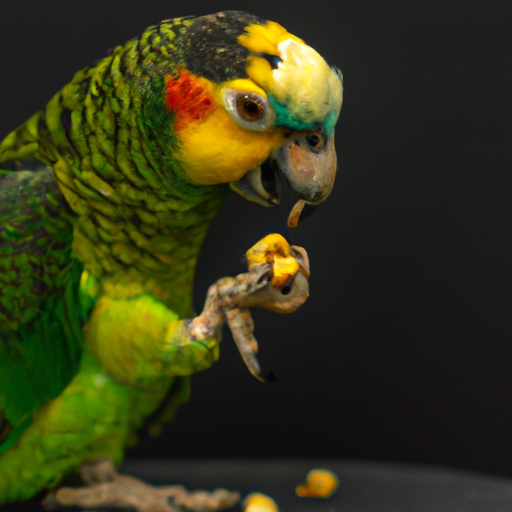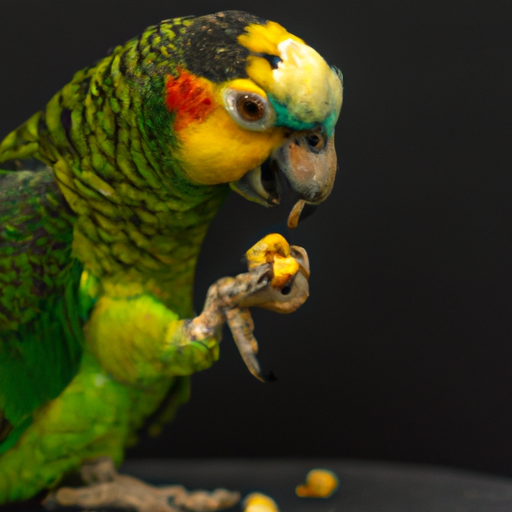
As bird owners, we love our parrots for their vibrant colors, their intelligence, and their entertaining personalities. However, when our feathery friends start acting out of sorts or stop eating, it can be a cause of serious concern. If your parrot isn’t eating or behaving normally, it could be a sign of an underlying health issue. In this article, we’ll explore what you should do if you find yourself in this situation.
Firstly, it’s important to understand that changes in your parrot’s behavior or eating patterns don’t necessarily mean there is a problem. Parrots, like people, can have off days. They can also become disinterested in their food if they’re bored with their diet. However, if these changes persist, it’s time to take action.
The first step is to closely observe your parrot. Look out for any other symptoms such as changes in their droppings, breathing difficulties, or loss of feathers. These could be indications of a health problem. Also, take note of any changes in their environment which could be causing them stress. Have you moved their cage recently? Have you introduced any new pets into the home? All these factors could be affecting your parrot’s behavior.
If your parrot continues to refuse food or act abnormally, your next step should be to contact your vet. It’s crucial to have a vet who specializes in avian medicine, as they’ll have the knowledge and skills necessary to diagnose and treat your parrot. If possible, try to provide your vet with as much information as you can about your bird’s diet, daily routine, and the symptoms you’ve observed. This will help them to make an accurate diagnosis.
Your vet will likely perform a physical examination of your parrot and may also require diagnostic tests such as blood tests or radiographs. Depending on the results, they may prescribe medication or recommend changes to your parrot’s diet or environment. Remember, it’s important to follow your vet’s advice closely and to administer any prescribed medication as directed.
While dealing with a sick parrot can be stressful, there are things you can do to help your pet during this time. Maintain a calm and quiet environment to reduce their stress levels, and ensure their cage is clean and comfortable. Try offering them their favorite foods to encourage them to eat, and spend time with them to provide comfort and reassurance.
Prevention is always better than cure. Regular check-ups with your vet can help to catch any potential health problems early. It’s also important to provide your parrot with a balanced diet, plenty of exercise, and mental stimulation to keep them healthy and happy.
When it comes to dealing with a parrot that’s not eating or acting normal, it’s all about being observant, proactive, and patient. Your feathery friend depends on you for their well-being, so it’s up to you to ensure they get the care they need. Remember, a healthy parrot is a happy parrot, so keep an eye out for any changes and don’t hesitate to seek professional help when necessary.
Take heart in the knowledge that with the right care and attention, your parrot can bounce back to their vibrant, spirited self, filling your home with their lively chirps once more.


3 Comments
Thanks for this insightful post! I’ve noticed our feathered friend, Polly, has been a bit off her game lately. She’s not eating as much and her energy levels have dropped. I’ll definitely try some of your tips and also schedule a visit to the vet just to be safe.
I really appreciate this article! My parrot, Pepper, recently stopped eating his favorite treats and it had me worried. Your suggestion about changing up their diet to include more fruits and vegetables seems to be working. He especially loves apples!
Great read! I like how you emphasized the importance of regular vet check-ups for our parrot pals. I think we often overlook how sensitive these lovely creatures can be. Your tips on maintaining their physical and mental health are valuable. I’ll be sure to keep a closer eye on my parrot’s behavior.